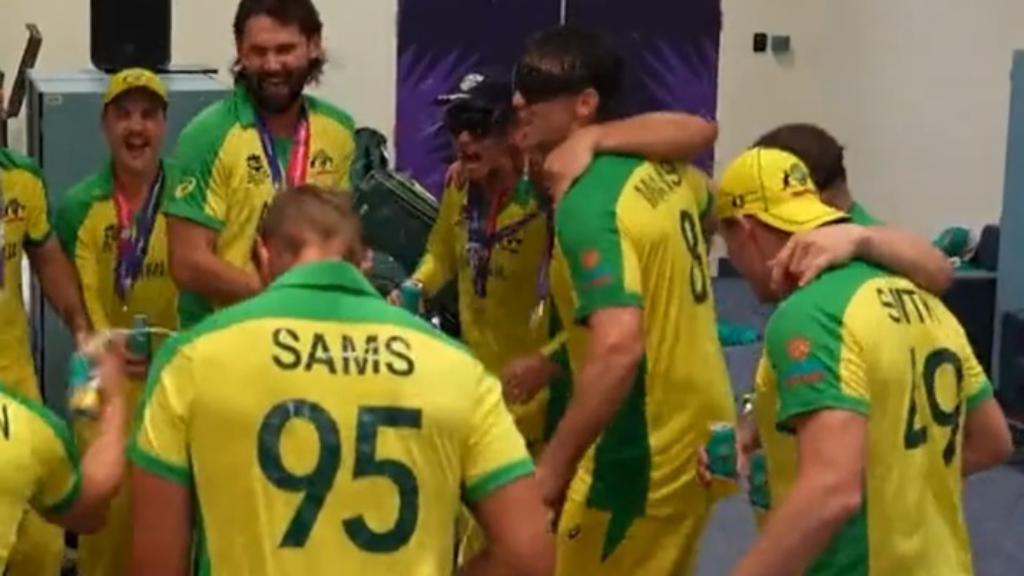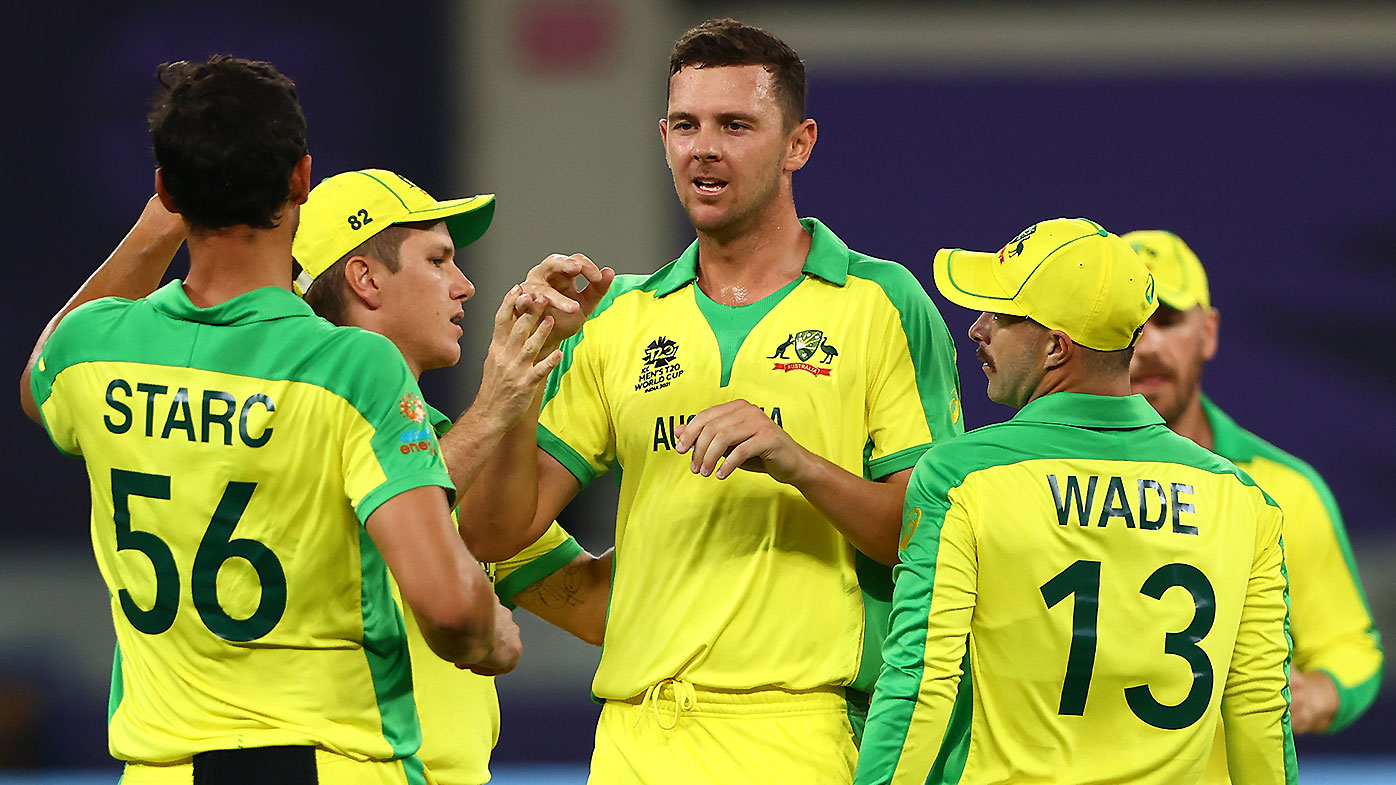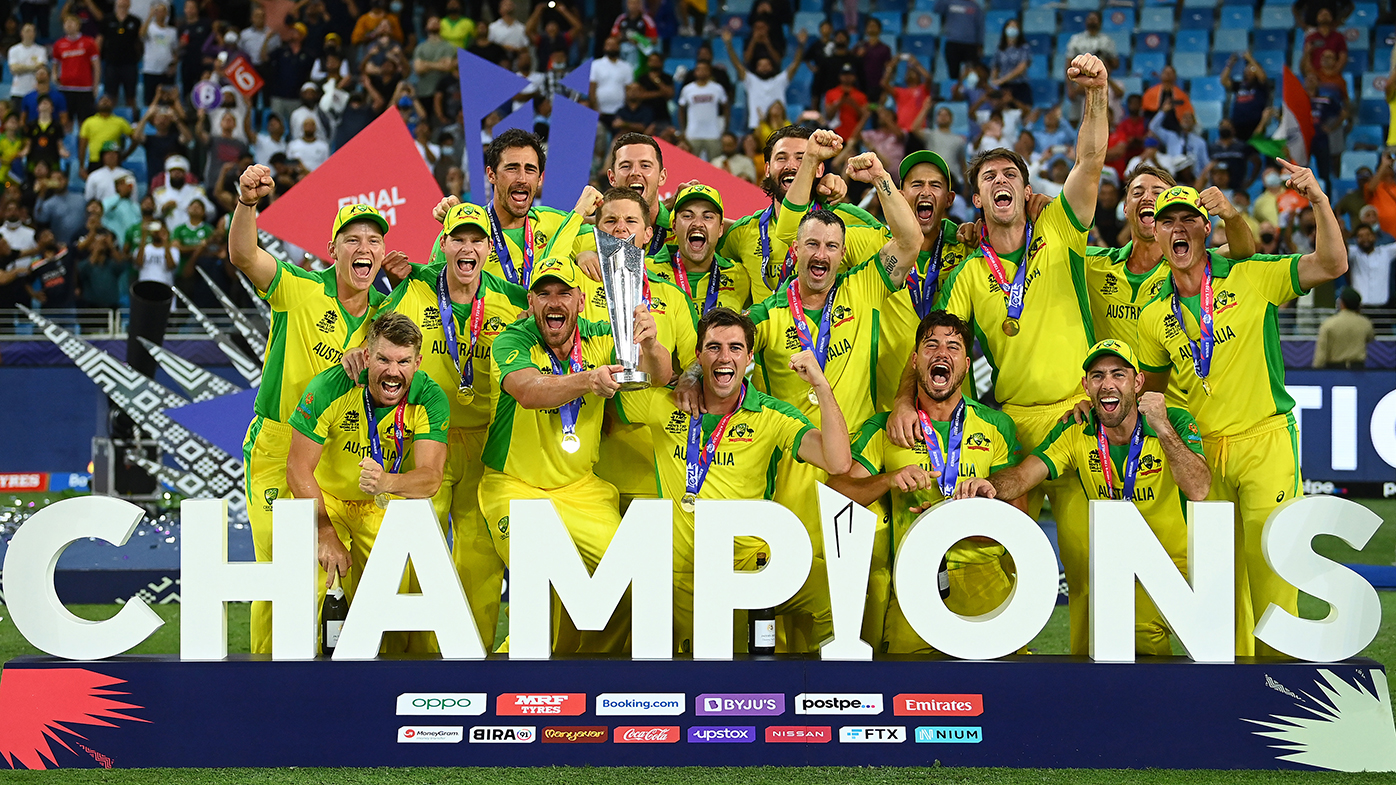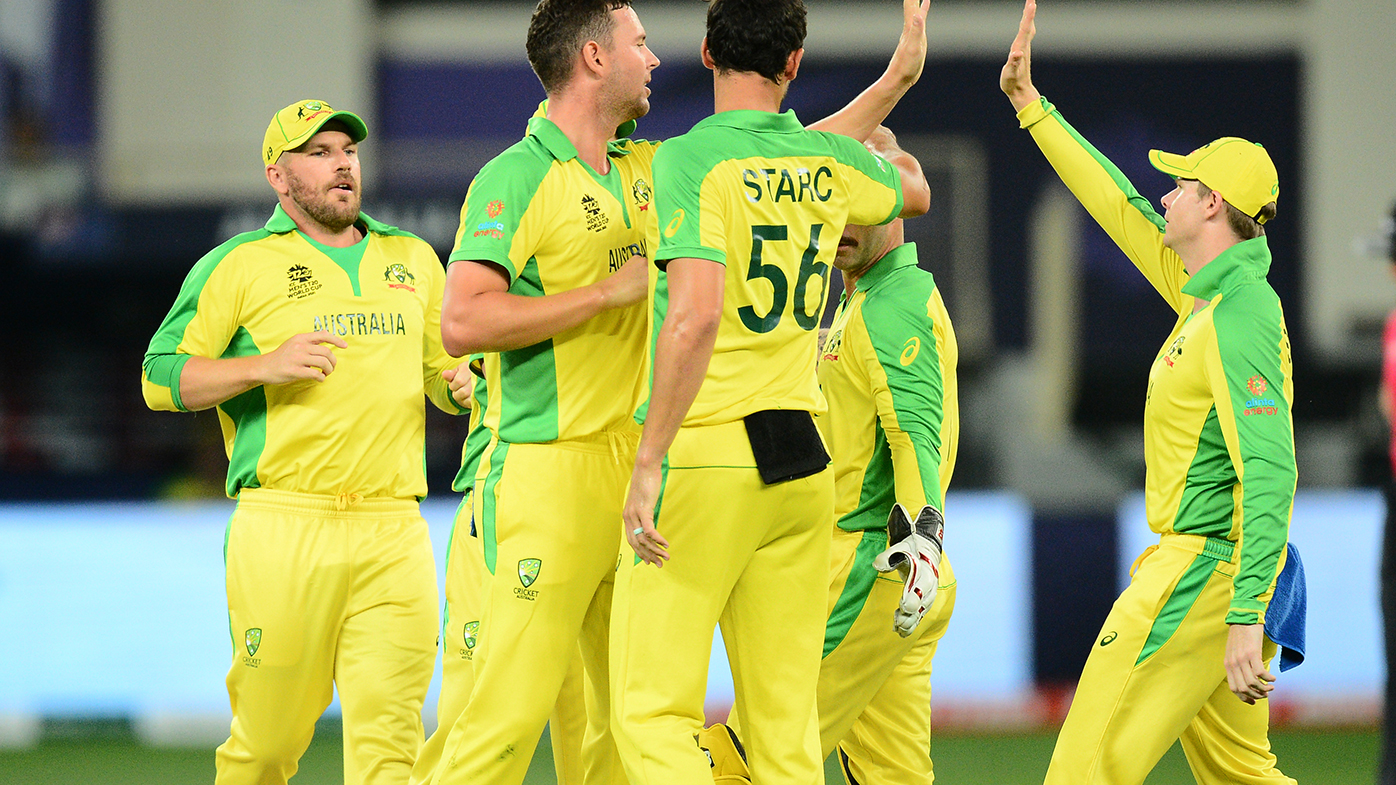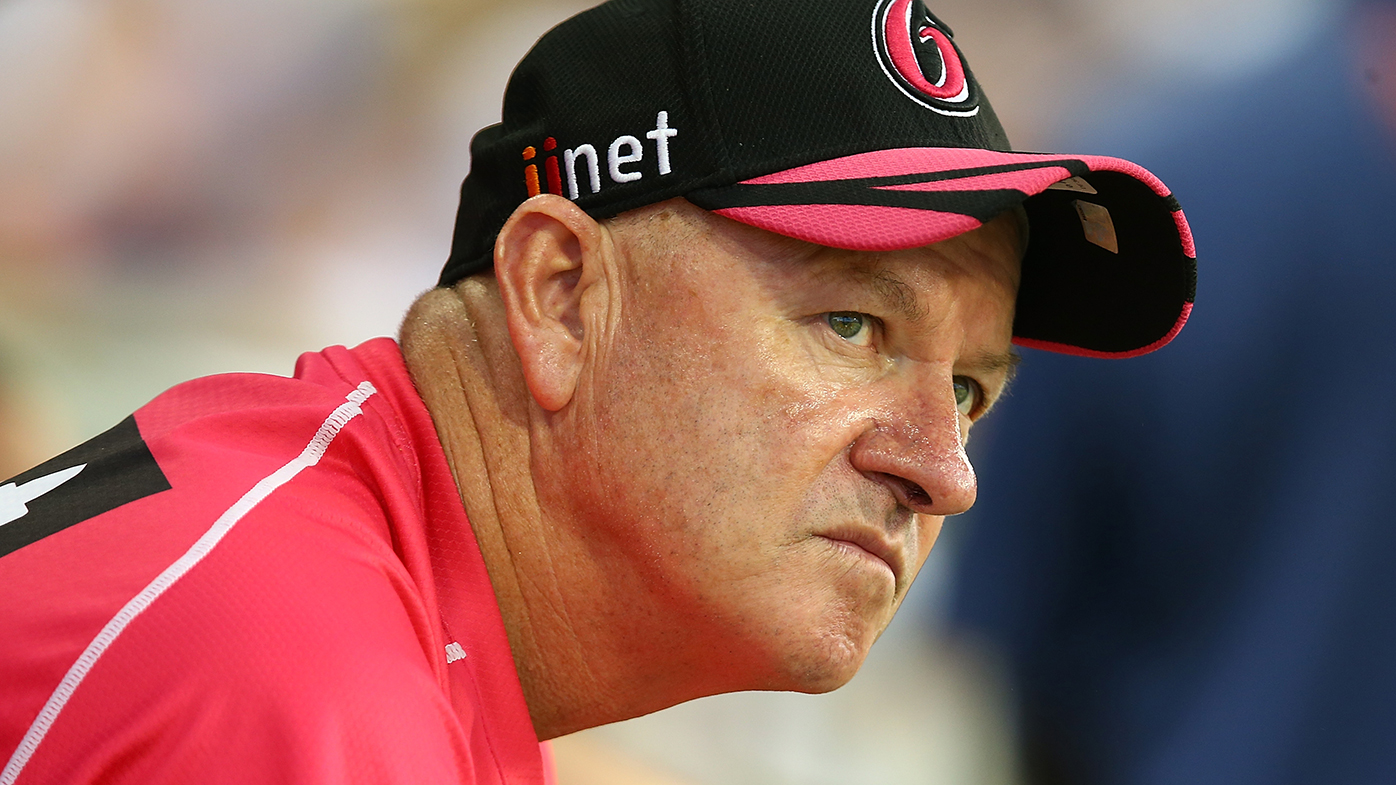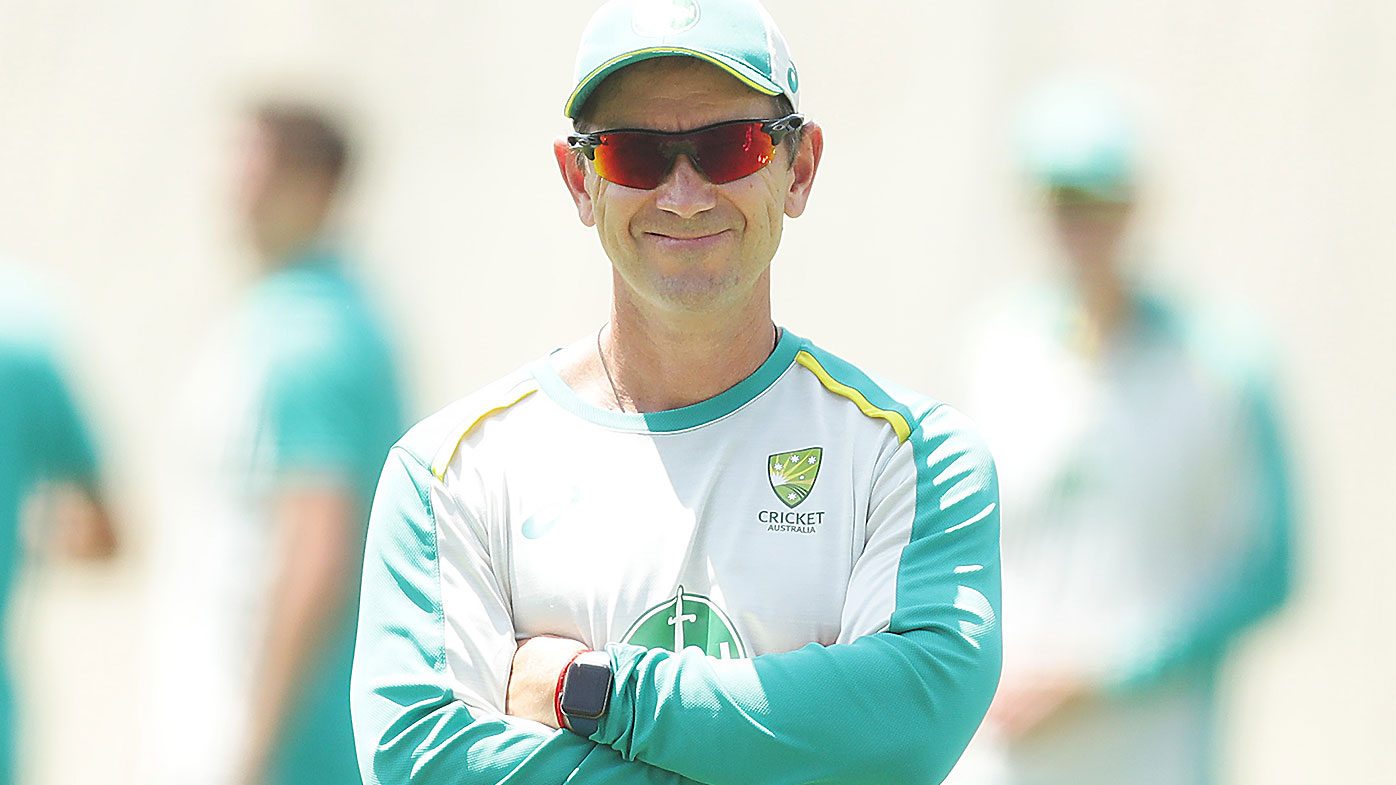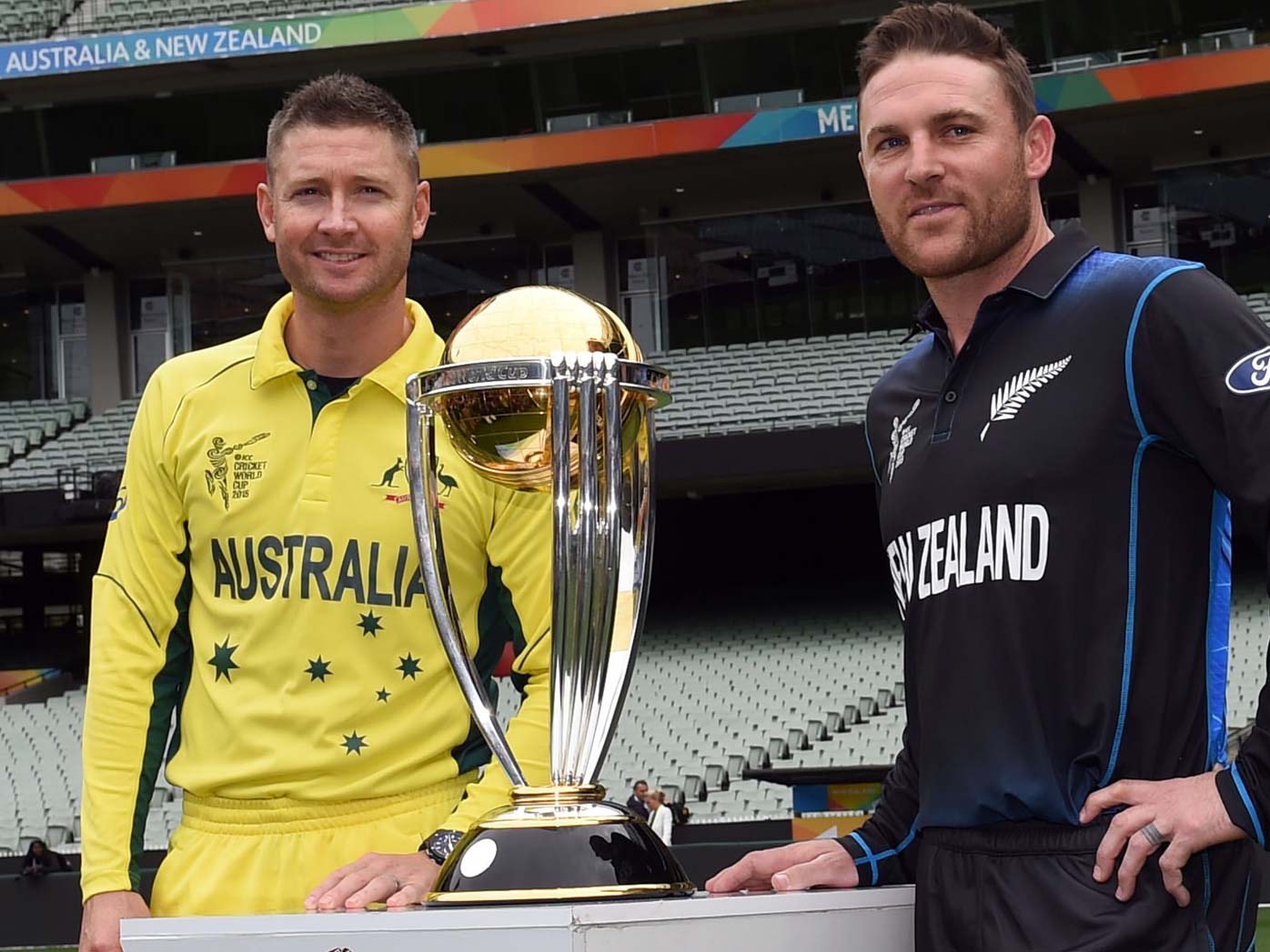BBL-winning coach Greg Shipperd says a stint with the Sydney Sixers was the catalyst for re-starting Josh Hazlewood’s T20 career, which culminated in a decisive spell in yesterday morning’s (AEDT) World Cup final.
Between February 2014 and January 2020, Hazlewood played just three T20 matches, all within the space of three weeks in March 2016.
As a regular in the Australian Test team in that period, international commitments made an appearance in the Big Bash League all but impossible. With Australia mostly overlooking the fast-bowler for T20 Internationals, his career in the shortest form of the game appeared to have stalled.
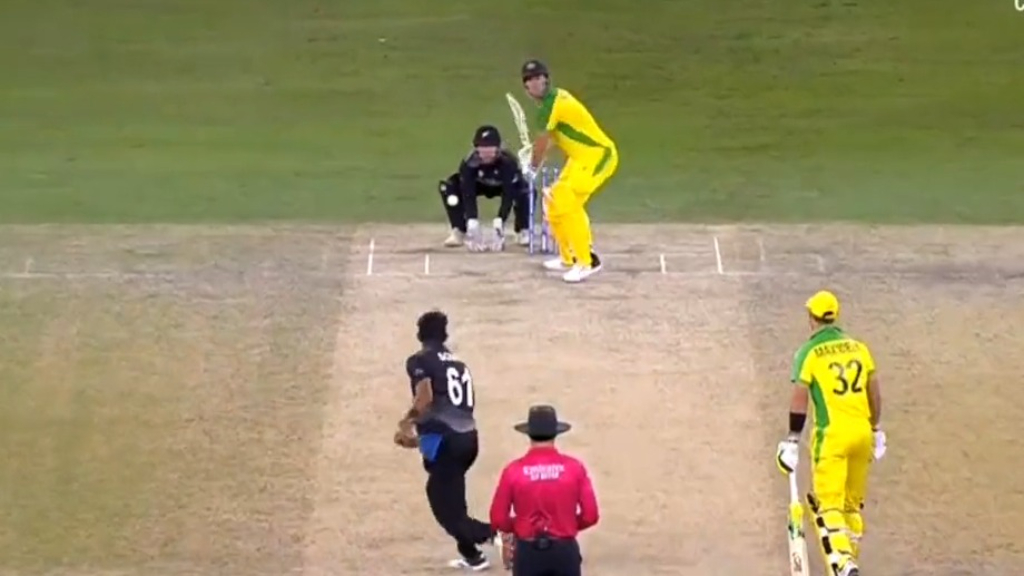
READ MORE: Papali’i rejects huge Dolphins offer
READ MORE: Kyrgios says 2022 Australian Open should be cancelled
READ MORE: Scottie Pippen says Michael Jordan ‘ruined basketball’
But a five match stint with the title-winning Sixers team in BBL09 opened the world’s eyes to Hazlewood’s potential in T20 cricket.
Five wickets, and a miserly economy rate of 6.22 runs per over saw Hazlewood earn an IPL contract with Chennai.
His second season with the Super Kings, immediately before the World Cup, saw him given an extended run of nine matches, where he took 11 wickets, and shed the perception that his consistency, such a strength in red-ball cricket, was a weakness in T20.
“Josh’s stint with the Sydney Sixers, in the year that he played with us, was a reminder that he was more than capable in this form of the game, and it also showed the rest of Australia and the world that this guy is an absolute gun in whatever format of the game he plays,” Shipperd told Wide World of Sports.
“It was the year we won the first of our two consecutive titles, and it was a watershed moment for Josh.”
Although he’s approaching his 31st birthday, Hazlewood has played more than half his 64 T20 matches since starting his stint for the Sixers in early 2020.
That experience was invaluable on Monday morning, when he returned figures of 3-16 from his four overs against New Zealand.
The late Dean Jones always had a theory about T20 matches, that if you won the 18th over you won the match. That was highlighted again in the World Cup final, when Hazlewood dismissed both Glenn Phillips and Kane Williamson in the 18th over, whilst conceding just five runs.
Mitchell Marsh and David Warner may have garnered the headlines, but Hazlewood’s performance was just as important in earning Australia its first T20 World Cup.
There’s a view that Australia’s T20 team is perhaps the most orthodox in the world, given the significant overlap in personnel with the Test team. Hazlewood, Mitchell Starc, Pat Cummins, David Warner and Steve Smith are all key members of both sides.
While other nations have turned towards short-form specialists, Shipperd says it’s easy to see why Australia has taken the approach it has.
“We are blessed with three of the best pace bowlers in all forms of the game, so I can see the logic in that,” he explained.
“It’s a mature team, there was that remarkable statistic that Pat Cummins was the youngest member of the side at the age of 28.
“It was the right time for them all, they’ve all got a decent amount of international experience and they played wonderfully well under that pressure.
“As Dan Christian said, ‘Old guys win stuff in this format of the game.'”
While Australia was certainly not among the pre-tournament favourites on the back of series losses to both the West Indies and Bangladesh, it should be pointed out that in neither series did Australia field a full-strength side.
Shipperd concedes that that’s not an approach Australia would use in the Test arena, where every match is seen as equally important.
“I think everyone wants to have all the players available all the time, but the reality of the international programming makes that difficult,” he admitted.
“Many would argue it was the right thing to do, so you have the best players available at the right time.
“T20 has been at the bottom of the pecking order, but given our World Cup win, and the opportunity to go back-to-back at home next year, it elevates the profile of that format.
“I’m sure they’ll be just as keen to make sure that all the pieces of the puzzle are ready to go in October next year.”
Whether Justin Langer is at the helm for next year’s T20 World Cup remains to be seen, with former captain Michael Clarke admitting that he thinks Langer will quit after the Ashes this summer.
While Australia has long split the captaincy between the various formats, splitting the coaching role has been something that’s not seriously been considered.
But it’s very much a possibility in the future, according to Shipperd.
“It’s a difficult position to argue at the moment, given the current coaching setup has just won a World Cup, which is a great credit to them,” he said.
“But those questions are absolutely legitimate, particularly as the COVID-19 situation eases, and the team is on the road a lot more.
“That’s a question for Justin and his team to answer, as well as Cricket Australia, in terms of how much petrol is in the tank.
“I’m sure it’s not something on their minds at the moment, they’ll now be focused on the Ashes, but the workload can be wearing over time and only Justin and his team will know how much it takes out of them.
“If they can rotate themselves in and out of the program, as we do sometimes with the bowlers, that’s also a legitimate way to manage it.”
A World Cup on home soil is often the catalyst for significant change in personnel, with long-serving players bowing out of the game after such an occasion.
Michael Clarke, Brad Haddin and Mitchell Johnson all played their final one-day international in the 2015 World Cup final at the MCG, while Shane Watson’s last match came just six months later.
Aaron Finch, David Warner and Steve Smith might all be expected to retire from T20 cricket after next year’s World Cup, and the bowling depth will be tested as well, given the age of Starc and Hazlewood, and the possibility that Cummins will have inherited the Test captaincy by then.
But according to Shipperd, the future is bright for our bowling stocks.
“There’s a growing band of younger players pushing forward, and in years to come it’s going to be Jhye Richardson, Riley Meredith, Kane Richardson and Michael Neser that are going to be at the forefront,” he said.
“You’ve got Swepson and Agar as well, so there’s some solid depth.
“Our big weakness is in those really tired sub-continental wickets, and that’s still our biggest challenge. But let’s celebrate the win, for now, it’s such a positive for the game.”
Pressed as to how Australia can overcome the issue of performing on low-slow pitches, where the team was badly exposed in both the West Indies and Bangladesh, Shipperd says the work needs to start at a young age.
“That’s a systemic issue, and we need to think with imagination about how we can develop an awareness of spin, and develop our spinners through the U/15s, U/17s and U/19s,” he explained.
“Maybe that means at our national carnivals the third round and the seventh round are played on spinning wickets. Maybe in the Futures League we play a round on worn wickets.
“Lets come up with a solution here, rather than the massive expense of travelling to the sub-continent.
“We can use our imagination at the grassroots level, and in the elite pathways, to improve our performance on the sub-continent.
“We probably won’t master the conditions that way, because that requires a real singular focus, but we can definitely improve, and if we get 15-20 per cent better than will make a big difference.”
For a daily dose of the best of the breaking news and exclusive content from Wide World of Sports, subscribe to our newsletter by clicking here!
